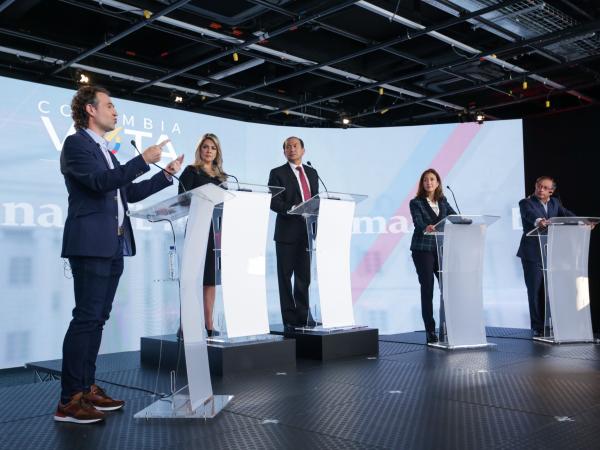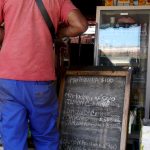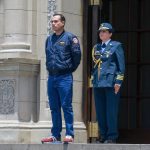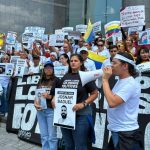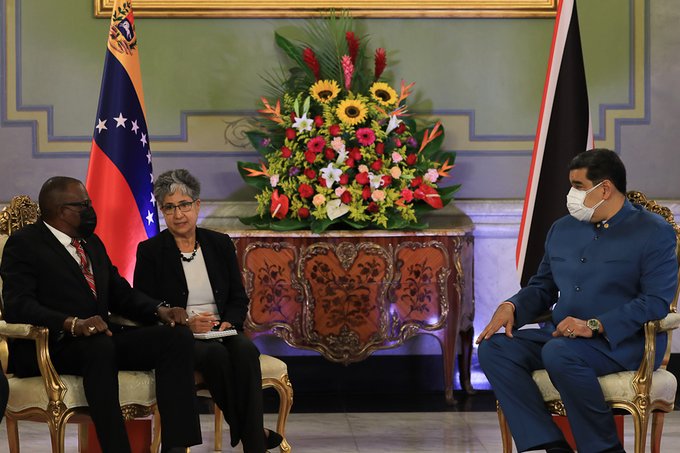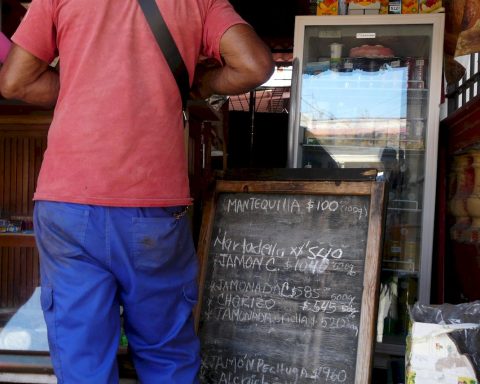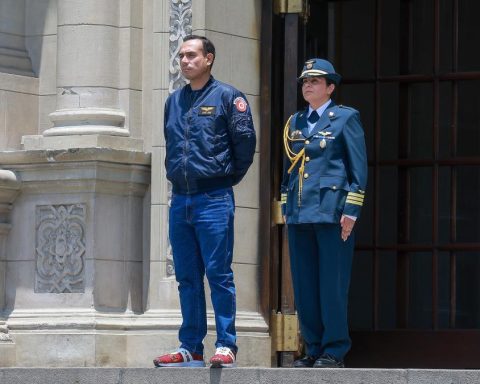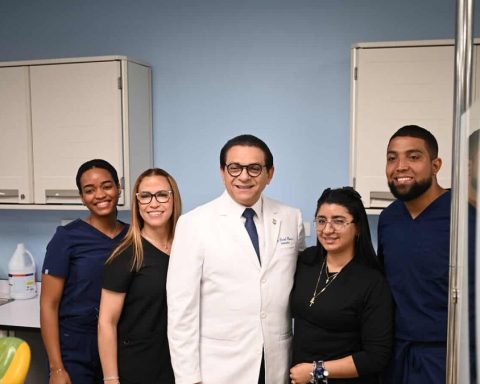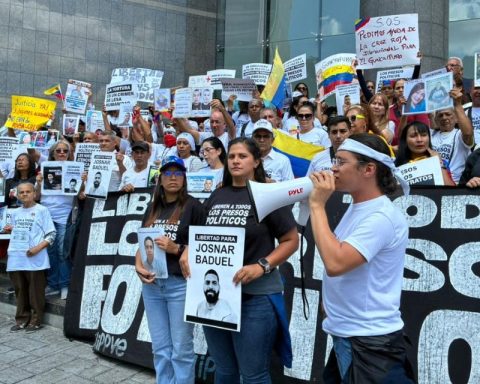About 10 weeks before Colombians go to the polls for the first-round election of the President of the Republic, expectations revolve around his proposals and the campaigns must get ‘in shape’ to specify what their programs could be. Government. Briefcase He consulted union leaders, from various sectors of the economy, about the agenda of interest to businessmen that should be included in the debates until May 29.
(Candidates would reveal their formulas to the Vice Presidency this week).
Sandra Forero, president of the Colombian Chamber of Construction.
private file
BUILDERS
Sandra Forero, president of Camacolwarns that the debates should take place “with arguments that allow constructing, evaluating and having an objective voting criterion and isolate the voter or public opinion from elements that may constitute uninformed decisions.”
At the sectoral level, it emphasizes that they make their vision known about the continuity of the housing policy, land use planning, the urban development of cities, and the provision of basic infrastructure and social facilities.

The president of Fenalco, Jaime Alberto Cabal.
Nestor Gomez/THE TIME
MERCHANTS
Jaime Alberto Cabal, president of Fenalco, expressed that at this point in the contest, more space should be given to experts to analyze what the candidates propose.
“Colombians, who are deciding their vote, cannot be left with only one side of the coin, a lie or a half truth.” On issues that should be debated, he mentions the economic model, democracy and economic freedoms (the role of business), structural reforms (labour, justice, fiscal sustainability). In strengthening the State he cites legal and citizen security, and in economic development the reduction of poverty, education, employment and infrastructure. For merchants, formalization, technological innovation, electronic commerce and foreign trade are of interest.

María Claudia Lacouture, director of AmCham Colombia and first president of Aliadas.
private file
MULTINATIONALS AND SERVICES
Maria Claudia Lacouturewho chairs AmCham and Aliadas, states that in the debates “We should think of formats that promote the exchange of ideas and limit the possibility of dart wars.” In his opinion, they are important proposals on reforms that guarantee growth in the short, medium and long term, and he believes that they should talk about productive bets, investment and foreign trade. He also changes to justice, regulation and legal stability, as well as strategies for employability.

Hernando José Gómez, president of Asobancaria.
private file
FINANCIAL SECTOR
It is important that “The debate is about proposals, ideas and programs. This is not about who has the magic wand to end everything and redo it” notes the president of Asobancaria, Hernando Jose Gomez.
(Petro will not attend debates, after announcement of vote recount).
For the leader, it is essential to understand what his formulas are to achieve sustainable growth, which contributes to closing social gaps and caring for the environment. He says that the sector is attentive to listening to applicants on how to work on issues such as greater support for MSMEs, the deepening of successful policies for access to housing, the digitalization of financial services, the formalization of employment and companies. , and the fight against evasion and avoidance, among others.

Bruce Mac Master, president of Andi.
Hector Fabio Zamora / CEET.
THE INDUSTRIAL
The president of Andi, Bruce MacMasterpoints out that in the current circumstances the debates require a serious and deep conversation about the economy.
“The care of current employment, the creation of new employment, as well as the generation of conditions to generate new investments will be fundamental in the future, for which we must know the positions in this regard”, said.

Juan Martín Caicedo, president of the Colombian Chamber of Infrastructure (CCI).
private file
INFRASTRUCTURE SECTOR
Juan Martin Caicedo, Executive President of the Colombian Chamber of Infrastructure, CCI, states that it is important to know the vision of the candidates on the Intermodal Transport Master Plan 2105-2035. There, he specifies, a large-scale project appears: the transverse of the Pacific, a work that would connect the Altillanura with the port of Buenaventura.
He believes that the new president should be asked to lead, in the territorial entities, the execution of the billionaire item that is now available for royalties and that could well be destined to intervene in the network of tertiary and secondary roads.
He maintains that it is necessary to put in the discussion how to speed up the structuring of new projects such as 5G. And he adds that his ideas should be known in the fight against corruption in public works contracts and the increase in the dynamics of execution. Finally, he asks them to consider how to give continuity to private participation in the sector and how to improve its competitiveness.

Jorge Enrique Bedoya, president of the SAC.
Juan Manuel Vargas – Weather
THE FARMERS
Jorge Enrique Bedoyaof the SAC, points out that “It would be very positive to see the commitments in numbers, in budget, in kilometers of roads and in matters of legal certainty. Know how they are going to do it, who they are going to surround themselves with and if they are going to work with the institutional framework”.
He points out that in the debates, they should talk about the agricultural budget, with a 4-year vision and long-term policy. He believes that it is necessary to know if the VAT treatment for the food of Colombians and producers is going to be modified, in a tax reform. For the sector it is important that they say “if they are going to pull a regime to own labor in the field to attack informality”. “It is necessary to clarify if the private property of small, medium and large producers is going to be protected, if the figures of expropriation, and the extension of domain rights are going to be used”, it says.

Javier Díaz Molina, president of the exporters union, Analdex.
Carlos Ortega/CEET
EXPORTERS
For Javier Diazfrom Analdex, the proposals to position the Colombian market abroad have been conspicuous by their absence in the presidential debates so far.
Indicates that “The problem is not imports, but the country’s few exports.” “It would be important to know the position of the candidates regarding the signing of new trade agreements and what is proposed regarding the 17 current FTAs; as well as proposals aimed at diversifying the export basket, trade facilitation strategies and logistics competitiveness that allow for safer investment and operating environments for Colombian entrepreneurs”.

Paula Cortés, president of Anato.
private file
TOURIST ACTIVITY
Paula Cortes, president of Anato, asks the candidates to focus on the needs of the country and leave behind personal differences. In the sector, he considers it important to resume the creation of the Ministry of Tourism to, from there, start towards its constant growth, improvement of the country’s image, informality, security in all destinations in Colombia and maintain tax exemptions to continue helping entrepreneurs this year.

Rosmery Quintero, president of Acopi.
Courtesy
SMEs
Rosemary Quinterowho leads Acopi, a union of micro, small and medium-sized companies, affirms that the debates have lacked depth and that they have been used as a space for confrontation.
He maintains that it is relevant that they present their visions on the reduction of costs to companies (fiscal/parafiscal and labor, better financial access). They must make proposals on reducing state spending, consider a system of subsidies for MSMEs to innovate and thus integrate into international trade.
Likewise, it is crucial that they explain whether they would apply differential policies, in tax and labor aspects and support the issues of technological reconversion and strengthening of workers’ skills and management skills in the sector.

Juan Camilo Nariño, president of the Colombian Mining Association (ACM).
MCA
MINING ACTIVITY
Juan Camilo Narino, The president of the Colombian Mining Association asks that the proposals to resolve the most important issues in the country be the protagonists of the next debates, that they be presented in greater depth and not remain as announcements.
“The mining sector is awaiting discussions on how to best take advantage of the country’s geological potential by promoting mining exploration and foreign investment in this area. In addition, how to combat the illicit extraction of minerals”, it says. He believes that they should give their opinion on the role of mining in the framework of climate change commitments.

Natalia Gutiérrez, executive president of the Colombian Association of Electric Power Generators (Acolgen).
private file
ENERGY ACTIVITY
Natalia Gutierrezpresident of Acolgen, expresses that “Colombians want to hear debates on proposals, not confrontations, so that we have enough information to make informed and structured decisions.”
He considers it essential to know the candidates’ programs in terms of employment and access to education, as well as the incentives that can be created so that the country advances in industrialization. At the sectoral level, it indicates that “We must focus on conserving and guaranteeing energy security, especially electricity, recognizing the contribution that all technologies (hydraulic, thermal, solar, wind, biomass) bring to strengthen our matrix, all under efficient and competitive signals.”

Alberto Samuel Yohai, president of the CCIT
Archive
TELECOMMUNICATIONS
Alberto Samuel Yohai president of the CCIT, believes that over time the candidates will come to ‘uncover their cards’ on the various issues. He believes that the ICT policy that will be generated to ensure the modernization and proper functioning of the economy should be incorporated into the debate very quickly. Apart from the roadmap for the country to enjoy 5G networks, it cites the cybersecurity and cyberdefense priorities of public entities and society, how to carry out public investments to generate efficiency and ensure the proper functioning of the State, and in In more general terms, the projects that will be generated to ensure that citizens are fully able to connect, regardless of their location.

María Fernanda Quiñones, president of the CCE.
private file
ELECTRONIC COMMERCE
Maria Fernanda Quinones, of the Colombian Chamber of Electronic Commerce, says that the ICT sector has not had the importance it deserves in the discussion scenarios until now. “Digitalization, in particular the development of the digital economy, the promotion and deployment of electronic commerce, are essential tools that will allow the economy to develop its full potential, encouraging entrepreneurial business models and consolidating medium and small companies, both in the internal market and in the external market, express.
BRIEFCASE
